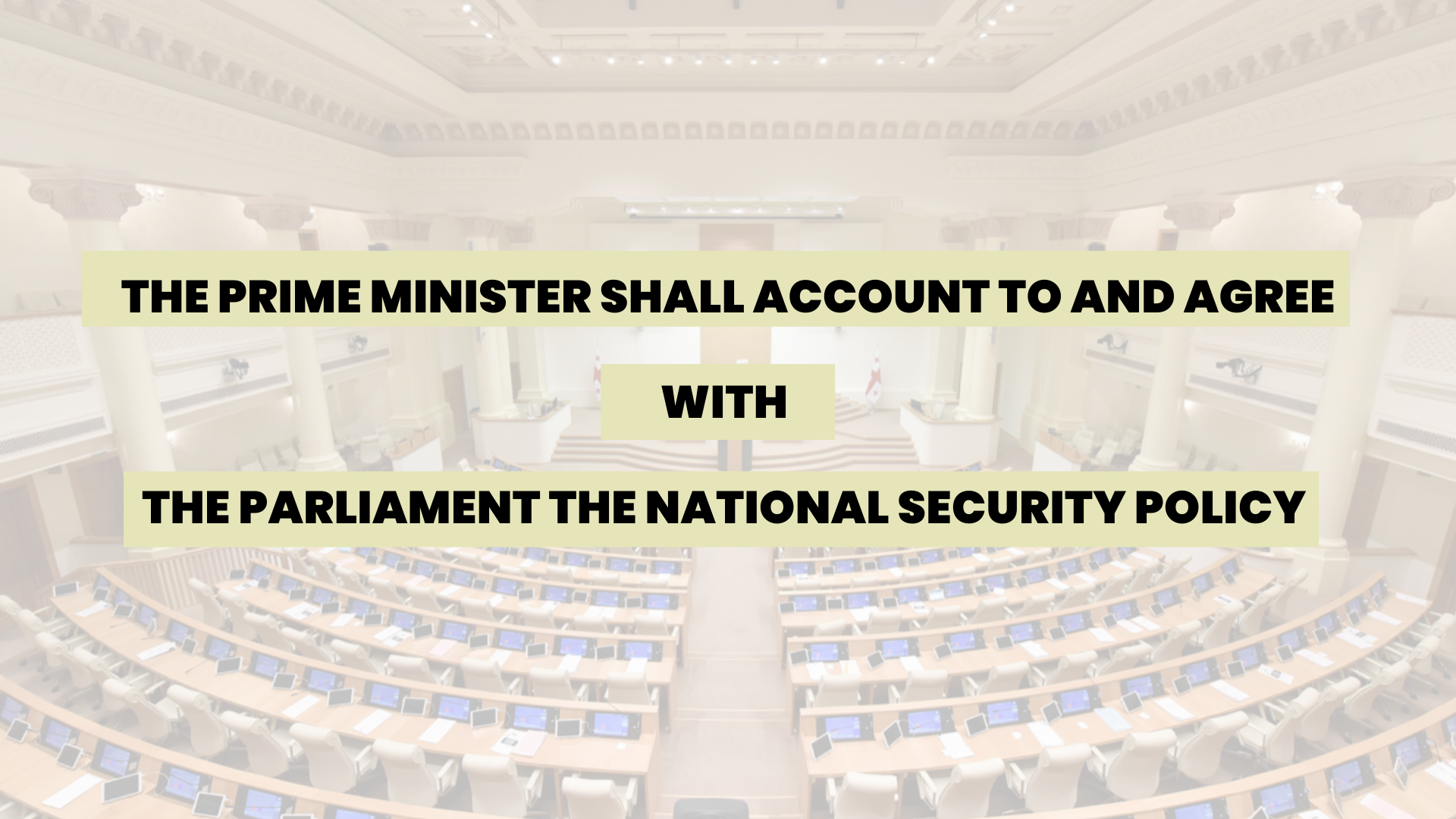
The Prime Minister Shall Account To And Agree With The Parliament The National Security Policy
Interpellation is a constitutional instrument of control over the government, when a member of the government is obliged to appear before the parliament and publicly answer specific questions of members of Parliament at the plenary session. During the interpellation held on March 24, 2023, the Prime Minister used the time of the interpellation inappropriately; The Prime Minister named the state of Ukraine as a national threat, which does not correspond to the national security policy of Georgia currently in force.
During the interpellation, the Prime Minister answered only two of the 7 questions asked by the opposition MPs and spent the time of the interpellation talking about issues that were not related to the interpellation and did not answer the MPs' questions. During the interpellation, the Prime Minister named the plan of the Ukrainian state officials to open so called „second front“ in Georgia as a national threat while the Parliament of Georgia has never recognized the state of Ukraine as a threat to Georgia’s national security. This may mean that the national threat named by the Prime Minister does not correspond to reality, is arbitrary and is dictated by narrow party goals.
Questions that the Prime Minister answered during the interpellation:
1. When asked why the basic documents of national security are not being updated, the Prime Minister answered that the government is working on the documents, but the impossibility of predicting the consequences of the war in Ukraine prevents them from being updated.
By law, the national security concept must be reviewed at least once every five years and updated any time there is a significant change in the country's security environment. The document is updated by the Parliament upon the submission of the Government. Taking into account the dramatically changed security situation in the region and other circumstances, it is likely that the national security concept of Georgia approved in 2011 needs to be updated, although the government does not present the issue to the parliament. This makes the government's security policy and response to threats opaque and arbitrary. The same can be said about the updating/approval of other basic national security documents: the Georgian threat assessment document is approved by the government; Meanwhile, the documents of the national strategy in the field of security are approved by the Prime Minister, which is also not implemented.
2. When asked whether the threats and challenges of Georgia have increased in light of the war in Ukraine, the Prime Minister named the so-called an attempt to open a "second front" by a number of high-ranking officials of the Ukrainian state and hostile forces operating in Georgia. It must be said that the mentioned threat has not been detected, identified, evaluated and predicted in the manner established by the legislation of Georgia - the current concept of national security and other documents. In addition, there are no updated/approved national security conceptual and strategic documents, which may mean that the threat from the state of Ukraine named by the Prime Minister is unrealistic, arbitrary and dictated by narrow party goals.
Questions that the Prime Minister left unanswered during the interpellation:
3. Why doesn't the Security Council meet according to the law, at least once every three months?
4. What steps has the government taken to increase national resilience and protect critical infrastructure?
5. In the face of increased threats, why is the defense budget radically reduced?
6. From the beginning of the war until now, what has the Prime Minister done to strengthen Georgia's defense capabilities in close coordination with Western partners?
7. When is the prime minister going to develop a common national vision for de-occupation and peaceful resolution of the conflict and approve a national strategy for combating hybrid threats?
According to Article 43.2 of the Constitution of Georgia, the Prime Minister was obliged to publicly and orally answer the questions put to him in the manner of interpellation, at the plenary session of the Parliament. In addition, the written answers of the Prime Minister were distributed to the members of the Parliament in an unreasonable time before the interpellation, which hinders the proper conduct of the debates provided for by the interpellation procedure.
